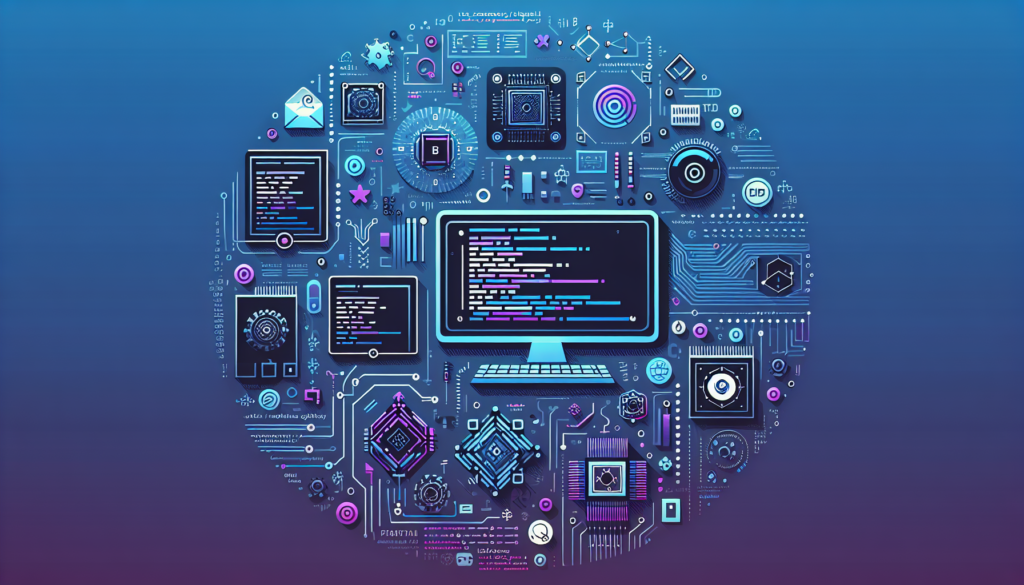As the digital landscape continues to evolve, data science emerges as a pivotal field driving innovation and decision-making across industries. Whether you’re a seasoned developer, an IT professional, or a tech learner, understanding the nuances of data science can significantly enhance your career trajectory. In this blog post, we will explore essential technical concepts, learning paths, industry trends, and practical applications that can empower you to excel in the realm of data science.
Key Takeaways
- Data science is crucial for extracting actionable insights from large datasets.
- Master key programming concepts and languages to build a strong foundation.
- Develop a structured learning plan to navigate your data science journey.
- Stay informed about industry trends to align your skills with market demands.
Technical Background and Context
The significance of data science cannot be overstated. With the world generating 2.5 quintillion bytes of data every day, the ability to analyze and interpret this data is critical for businesses looking to maintain a competitive edge. Data science combines statistical analysis, machine learning, and programming to transform raw data into meaningful insights.
Key programming topics for data scientists include:
📚 Recommended Digital Learning Resources
Take your skills to the next level with these curated digital products:
AI Enhanced Resume Builder
AI Resume Builder Flask App – Complete Source Code + PDF Tutorial + HTML | Digital Download for Designers
Learn AWS: Your First Cloud Application
Learn AWS: Your First Cloud Application
📊 Key Learning Points Infographic

Visual summary of key concepts and actionable insights
Comprehensive SAT Prep: 470+ Vocabulary Words
Comprehensive SAT Prep: 470+ Vocabulary Words
Master DevOps in Practice – 50 Essential Topics for Engineers (PDF eBook)
Master DevOps in Practice – 50 Essential Topics for Engineers (PDF eBook)
The Ultimate Keyboard Shortcut Guide 49 Software Cheat Sheets in One PDF Bundle
The Ultimate Keyboard Shortcut Guide 49 Software Cheat Sheets in One PDF Bundle
- Data Structures: Understanding dictionaries, lists, sets, tuples, and their applications is fundamental for managing and organizing data efficiently.
- Algorithms: Proficiency in searching and sorting algorithms is essential for optimizing data processing and retrieval.
- Logic and Control Flow: Mastering logic and control structures enables you to write effective code that can handle complex decision-making processes.
- Functions and OOP: Writing reusable functions and understanding object-oriented programming principles help in structuring your code and enhancing scalability.
In addition to programming, familiarity with SQL scripting is crucial for querying databases, while version control using Git and GitHub has become a standard practice for collaborative coding and project management.
Practical Applications and Use Cases
Data science has extensive applications across various sectors:
- Healthcare: Predictive analytics can help providers improve patient outcomes through personalized treatment plans.
- Finance: Risk assessment models are developed using historical data to predict future market trends and manage investment portfolios.
- Retail: Customer behavior analysis allows businesses to tailor marketing strategies and enhance customer experience.
- Public Policy: Data-driven insights inform decisions that address social inequalities and environmental challenges.
Leveraging these applications requires not just technical knowledge but also problem-solving skills and the ability to build relevant projects that demonstrate your capabilities.
Learning Path Recommendations
Embarking on a journey in data science necessitates a structured educational plan. Here are steps to guide your learning path:
- Choose a Programming Language: Start with Python or R for data analysis, SQL for database management, or Scala and Java for big data applications.
- Explore Online Resources: There are numerous platforms offering tutorials and courses on data science. Websites like Coursera, Udacity, and edX provide excellent materials on both theory and practical applications.
- Learn Git and GitHub: Familiarize yourself with version control through free resources like Codecademy and GitHub’s own guides. Understanding these tools is essential for collaborative projects.
Industry Impact and Career Implications
The data science market is projected to grow from $37.9 billion in 2019 to $230.80 billion by 2026. This explosive growth reflects the increasing reliance on data-driven decision-making across various sectors, highlighting the need for skilled professionals. By mastering data science skills, you position yourself as a valuable asset in the job market.
Career paths in data science can include roles such as data analyst, data engineer, machine learning engineer, and data scientist. Each role requires a unique set of skills, but a solid foundation in programming and analytical thinking is universally beneficial.
Implementation Tips and Best Practices
To effectively implement your data science knowledge, consider the following tips:
- Build a Portfolio: Work on projects that showcase your skills and understanding of data science concepts. Use GitHub to host your projects, making them accessible to potential employers.
- Stay Updated: The tech landscape is constantly evolving. Follow industry blogs, podcasts, and online communities to keep abreast of new tools and methodologies.
- Network with Professionals: Engage in forums and attend meetups or webinars. Networking can open doors to mentorship opportunities and collaborations.
Future Trends and Skill Requirements
As data science continues to advance, several trends are shaping the future of the field:
- AI and Machine Learning: Proficiency in machine learning frameworks such as TensorFlow and PyTorch is becoming increasingly important.
- Ethical Data Use: Understanding the ethical implications of data usage is crucial as businesses face scrutiny over data privacy and security.
- Big Data Technologies: Familiarity with tools such as Apache Hadoop and Spark will be beneficial as organizations expand their data capabilities.
Conclusion with Actionable Next Steps
Data science represents a dynamic and rapidly evolving field with vast opportunities for career growth. By mastering the necessary programming skills, building a solid educational foundation, and staying informed about industry trends, you can position yourself for success in this exciting domain.
Here are actionable next steps to kickstart your data science journey:
- Choose a programming language to learn and commit to a structured study plan.
- Start building projects and contributing to open-source initiatives on GitHub.
- Join online communities and attend workshops to connect with like-minded professionals.
Embrace the journey of learning and let your passion for data science propel you toward a rewarding career.
Disclaimer: The information in this article has been gathered from various reputed sources in the public domain. While we strive for accuracy, readers are advised to verify information independently and consult with professionals for specific technical implementations.
Ready to advance your tech career? Explore our digital learning resources including programming guides, certification prep materials, and productivity tools designed by industry experts.



